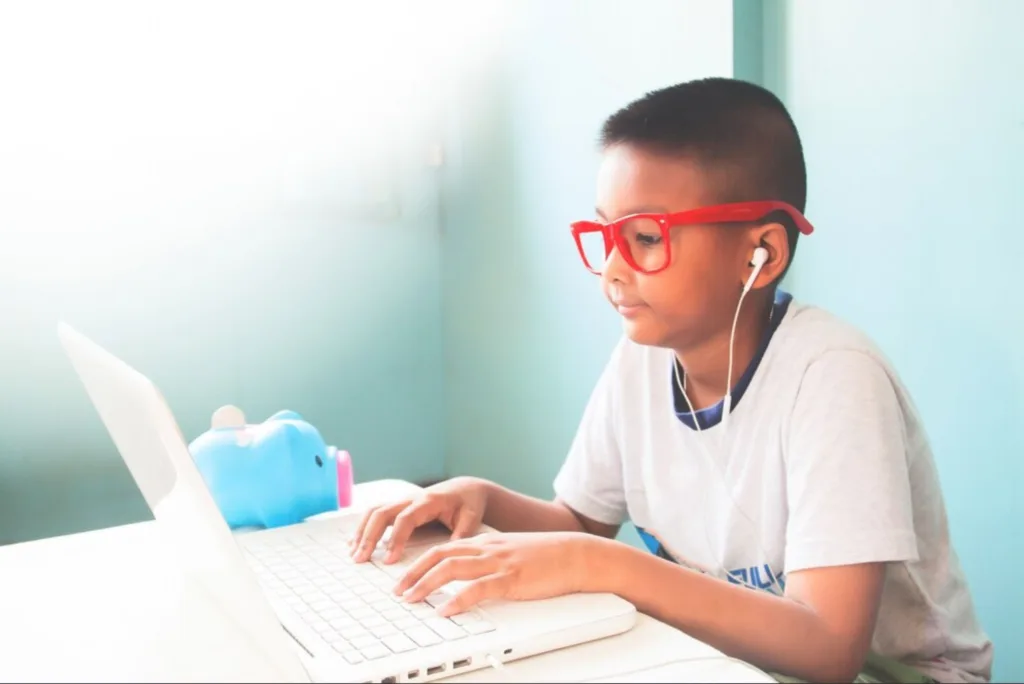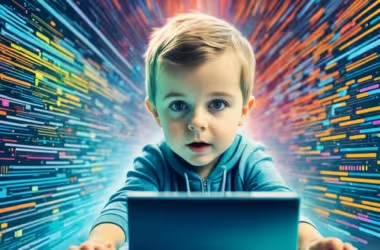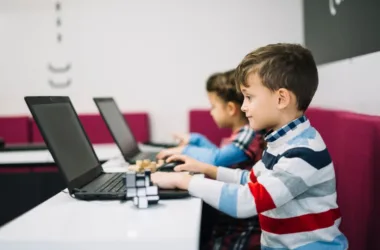Our children are growing up in a world dominated by technology. From smartphones and tablets to interactive games and educational apps, coding – the language that powers these technologies – is all around them.
Yet, many parents and educators may not understand the importance of teaching kids how to code.
This lack of awareness can leave children unprepared to navigate the ever-evolving digital landscape.
This blog post aims to shed light on the numerous reasons why coding is essential for kids.
We’ll go through the ways coding breeds creativity, builds valuable skills for the future, and empowers children to become active participants in the digital world, not just passive consumers.
Let’s go
Reasons Why Coding Is Important For Kids

Now, let’s take a good look at the reasons why coding is important for kids;
1. Problem-solving abilities
When kids are coding a game, they might encounter a challenge in designing a particular feature, such as implementing a scoring system or adding a new level. To overcome this challenge, they need to break down the problem into smaller, more manageable parts.
For instance, if they’re struggling to create a scoring system, they might first consider what actions in the game should earn points and how those points should be tallied. Then, they can experiment with different algorithms for calculating scores and test them to see which one works best.
Through this process, kids not only learn to solve the specific problem at hand but also develop a deeper understanding of how systems work and how to design efficient solutions. They become more confident problem solvers who can tackle complex challenges with creativity and perseverance.
2. Creative thinking and Innovation
Kids who learn to code have access to a world of creativity and innovation. When kids become good at coding, they can use their creativity to create original games, apps, and animations.
For instance, kids can make an interactive digital novel, a website showcasing their artwork, or a game where players have to navigate through a maze of pathways.
Using Scratch, a platform that lets kids make their games and animations out of colored blocks is one way to demonstrate creativity in coding.
Kids can use Scratch to play with various backgrounds, characters, and noises to make their ideas come to life.
In addition, they can showcase what they’ve created to others, which encourages them to experiment and think outside the box.
Learning to code helps kids be creative problem solvers and think outside the box. For example, kids might use coding to automate chores, like making software to schedule their schoolwork or remind them to water their plants.
Learning to code gives students the self-assurance they need to try new things and use technology to express themselves creatively.
3. It Strengthens Critical Thinking Abilities
Teaching children to code promotes the development of critical thinking abilities, which are necessary for problem-solving and decision-making. When learning to code, children must use reason and divide difficult jobs into smaller, more doable stages.
For instance, they must consider how to make the characters move, how to tally points, and what happens when the player wins or loses.
When something isn’t functioning as it should, coding also teaches children how to troubleshoot it. When their software doesn’t function properly, for example, they have to look at the code, find mistakes, and fix them.
Patience, perseverance, and the capacity to analyze potential causes of the problem are necessary for this approach.
Kids get the abilities necessary to overcome difficulties in both coding and other aspects of their lives by learning to code.
They learn to approach challenges methodically and logically, and they improve as problem solvers. Their ability to think critically will be useful in the classroom, in their future employment, and in daily life.
4. Getting Ready for Potential Career Paths
For kids, learning to code provides them with a world of interesting employment possibilities. Most industries, from healthcare to entertainment, rely heavily on technology in our digital era. Therefore, there is a rising need for those with knowledge of coding.
One of the fastest-growing areas, for instance, is software development, which provides a variety of job opportunities, including software engineering, web development, and app development.
Kids can pursue careers in these and other industries by learning to code, which gives them important skills.
5. Learning to code promotes persistence and confidence
Though coding might be difficult, kids who overcome their challenges develop resilience and confidence. Kids learning to code are taught to persist and solve difficulties through trial and error.
A child could first become frustrated if, when attempting to write a program that determines the average of a list of integers as well, they run across coding mistakes.
Nevertheless, they ultimately identify and correct the mistakes by persisting and debugging their code, which gives them a feeling of confidence in their skills and success.
Children can acquire the qualities of perseverance and tenacity by coding. They discover that failing is OK as long as they don’t give up and that making errors is a normal part of learning.
They succeed at coding as well as other aspects of their life, such as extracurricular activities and academics, thanks to their resilient and persistent approach.
6. Computational Thinking
The capacity to break down complicated issues into smaller, simpler parts is a skill that coding develops.
Children need to learn this ability because it enables them to tackle difficulties in an orderly and methodical manner.
For instance, while developing a program to solve a math issue, children must divide the problem into manageable stages and develop algorithms for each step. Finding answers to issues involves pattern recognition, problem-to-problem similarity recognition, and logic application.
On top of that, computational thinking teaches children how to create algorithms that might be used to solve related issues in the future and assess problems from several angles.
This is a useful ability not just in programming but in math, physics, and engineering as well.
7. Promotes Cooperation and Effective Communication
Working in groups and successfully communicating ideas are commonplace in the coding industry. Kids develop critical social skills by learning how to work together, share their work, and provide criticism.
Kids must listen to others’ viewpoints, effectively convey their ideas, and work toward a shared objective when they collaborate on a coding project, for instance. They learn how to appreciate the ideas and contributions of others and how to function well in a team through this teamwork.
Similarly, kids working on coding projects often need to present their work to others and ask for comments on how to make it better.
Kids learn how to effectively communicate their ideas and integrate comments to improve their projects by exchanging code with others and accepting constructive criticism.
8. Having a Growth Mindset
Kids who program have a growth mindset, which is the conviction that one can improve one’s skills by persistence and hard effort.
Kids who adopt this perspective are better able to overcome obstacles and seize chances for personal development, which is crucial for learning and personal development.
For instance, children learn to see challenges as chances to develop and learn rather than as barriers to overcome when they face challenges while learning to code.
They know they can learn from their errors and become better over time, and they also know that making mistakes is a normal part of learning.
Additionally, mastering new technologies and programming languages constantly is necessary for coding. Adopting a growth mindset makes children more adaptable, receptive, and eager to push their limits and try new things.
Read More: Coding For Kids 101 (The Ultimate Guide)
Frequently Asked Questions
Let’s take a good look at some of the frequently asked questions about the importance of coding for kids;
How does coding benefit my child beyond tech careers?
Coding develops problem-solving, critical thinking, and creativity useful in various fields beyond tech. In today’s digital age, tech understanding is beneficial across industries.
How can I support my child’s coding journey without coding experience?
You don’t need coding expertise. Use online tutorials and platforms, encourage exploration, and attend coding workshops together to foster curiosity.
Why is coding the future for kids?
Coding is the future for kids as technology becomes more prevalent in everyday life. Learning to code equips kids with the skills necessary for success in a digital world and opens up diverse career opportunities across various industries.
How is coding used in everyday life for kids?
Coding is used in everyday life for kids in numerous ways, from programming video games and apps to automating tasks and solving real-world problems. Understanding coding allows kids to interact with technology more effectively and become creators rather than just
Final Thoughts
So far in this guide, we’ve been able to establish that teaching kids to code is more than just preparing them for future careers; it’s about empowering them with essential skills in our modern world.
With coding, kids develop problem-solving abilities, critical thinking, creativity, and digital literacy, setting them up for success in an increasingly technology-driven society.
As coding continues to play a very important role in various industries, it can’t be overemphasized to equip kids with the skills they need to thrive in the future.
So let’s promote the importance of coding education for kids and provide them with the resources and support they need.
Together, we can inspire the next generation of coders, problem solvers, and leaders who will shape the future of technology and beyond.






